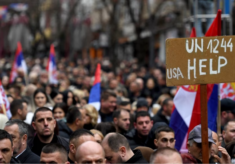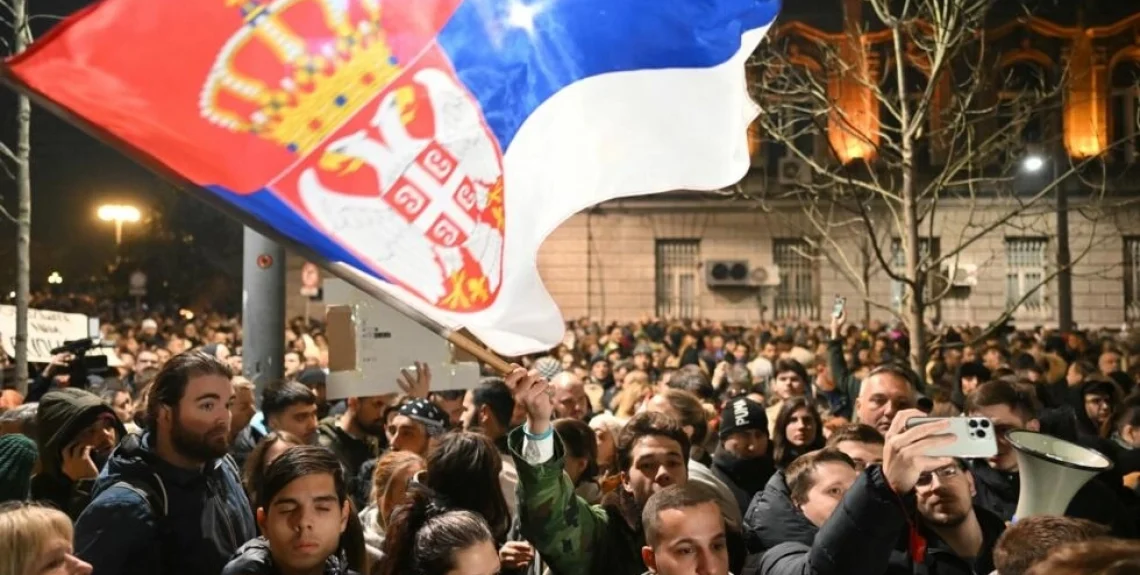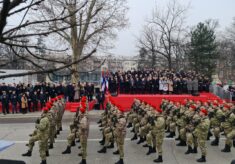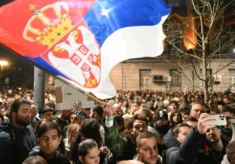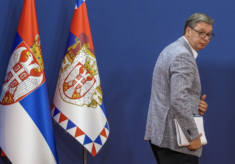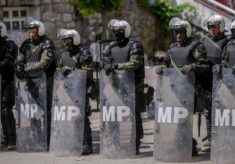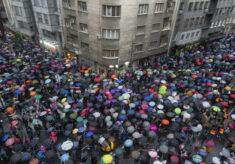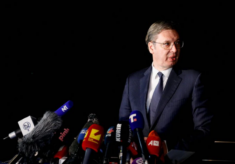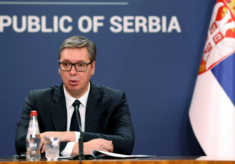As expected, the ‘Serbia Must Not Stop’ coalition built around Serbia’s dominant populist party, the Progressive Party (SNS) of President Aleksandar Vucic, secured a decisive victory in the early parliamentary elections and in the local elections held in the Balkan country on December 17. However, political discord escalated amid accusations of irregularities and fraud, particularly in the local election race in the capital city of Belgrade. These allegations have sparked fresh tensions and led to protests that could bring to destabilization and escalation in a key-country in the region.
The nationwide elections on the 17th of December were held to choose the new Parliament, the administration in the Vojvodina province and in more than 60 municipalities across Serbia, including the pivotal capital city of Belgrade, home to around one-fifth of the entire population. The main challenger to the Serbian Progressive Party (SNS) was anticipated to be the ‘Serbia Against Violence’ coalition, a new alliance comprising pro-EU, liberal, and environmentalist parties. This coalition aspired to break the decade-long dominance of the SNS at the national level, but principally it aimed at securing victory in Belgrade, potentially dealing a significant symbolical blow to President Vucic.
However, the results proved to be a source of disappointment for the opposition, as Vucic secured yet another triumph.
According to official data released by the state-level Election Commission (RIK), the Serbian Progressive Party (SNS) secured approximately 46% of the vote in the parliamentary elections, translating into an absolute majority in 250-seats Parliament. The main opposition coalition, ‘Serbia Against Violence,’ (SPN) obtained nearly 24% of the vote, securing around 65 seats. The traditional allies of the SNS, the Socialist Party (SPS) led by FM Ivica Dacic, garnered only 6,5% of the vote. Two other coalitions, namely the conservatives-monarchists of NADA and a newcomer, the ultra-populist party of Dr Majstorovic, also managed to secure seats in the new Parliament. Other right wing and nationalist formations, including the Radicals of Vojislav Seselj, fell short of the 3% threshold required for entry.
Surprisingly, contrary to many analysts’ predictions of a different outcome in the most progressive, pro-European, and modern Serbian city, the capital Belgrade, the Serbian Progressive Party (SNS) emerged victorious even in the local polls in the city. The SNS secured 49 seats, surpassing the 42 seats won by the SPN, according to official data. Nevertheless, opposition leaders promptly asserted that the elections in Belgrade were marred by significant irregularities. They claimed, among else, that ethnic Serbs from neighbouring Bosnia were transported in large numbers to vote in Belgrade. Serbia Against Violence alleged that 40.000 identity documents were issued for individuals not residing in the capital city, purportedly to inflate votes for Vucic’s SNS. Additionally, there were accusations of voters being either remunerated or subjected to pressure to cast their votes in favour of the ruling party.
As a result, the leaders of SPN officially called for the annulment of the elections in Belgrade and demanded a re-run. Thousands of demonstrators supporting the opposition gathered in front of the Serbian state level Election Commission seat in downtown Belgrade on the 18th of December, responding to the opposition’s call to protest against the results. Protesters held banners with slogans such as “They stole our future,” while others chanted “Vucic go away.” Many demonstrators appeared visibly angry and there were signs of potential scuffles.
In the meantime, international observers from the OSCE Office for Democratic Institutions and Human Rights (ODIHR) have corroborated that the Serbian elections were tainted by severe issues, at least at national level. Germany and the USA, meanwhile, asked Belgrade to address concerns about irregularities. The OSCE report highlighted instances of harsh rhetoric, media bias, pressure on public sector employees, misuse of public resources, and irregularities. “Serbia has voted, but the OSCE-ODIHR report [about] misuse of public resources, voter intimidation and cases of vote buying” described a scenario that is “unacceptable for a country with EU candidate status,” said the German Foreign Office.
Despite Vucic (who was not running for any position, but was the main actor in the elections) consolidating his hold on power with a decisive victory, the 2023 vote has the potential to introduce severe instability in the country. Main opposition parties appear poised for a robust challenge, including the possibility of mass protests, to push for a re-run of the vote in Belgrade.
This situation could significantly impact the stability of the country and lead to delays in the formation of a new government, particularly at a delicate moment when Belgrade is under substantial pressure to engage in talks with Kosovo with the aim of reaching a lasting “normalization” agreement.
